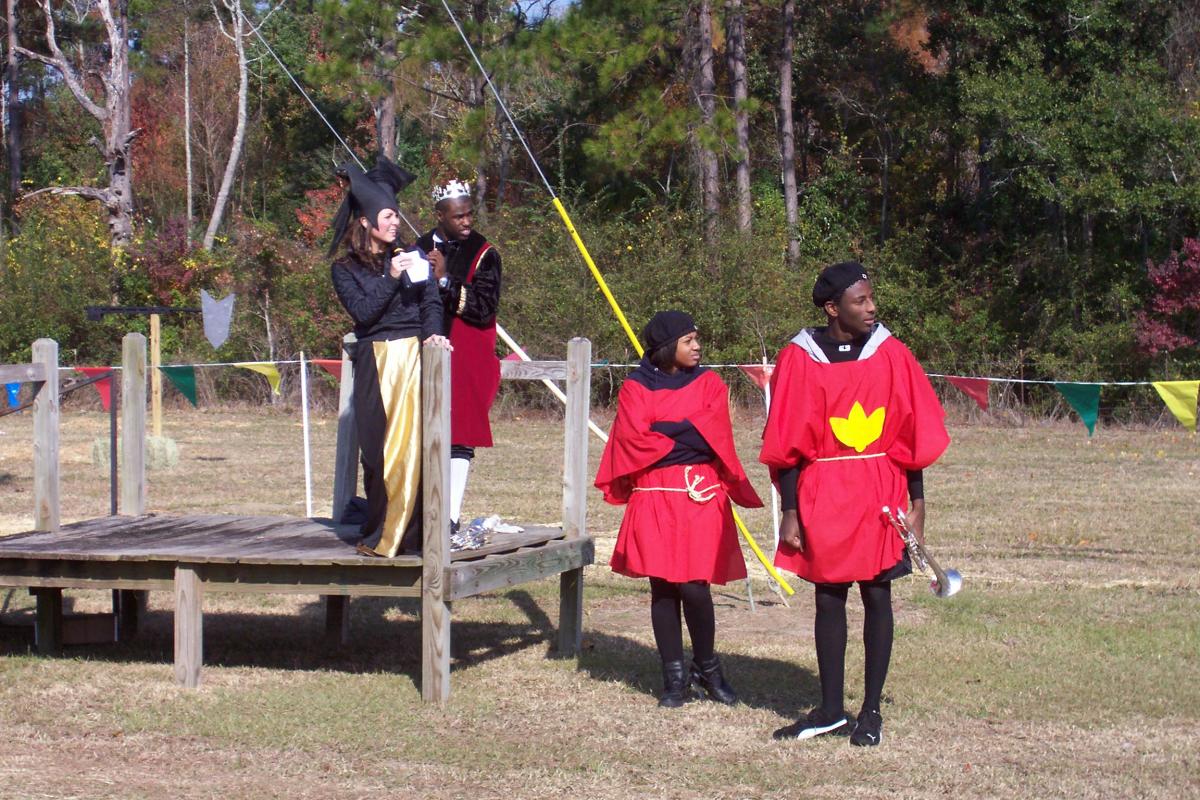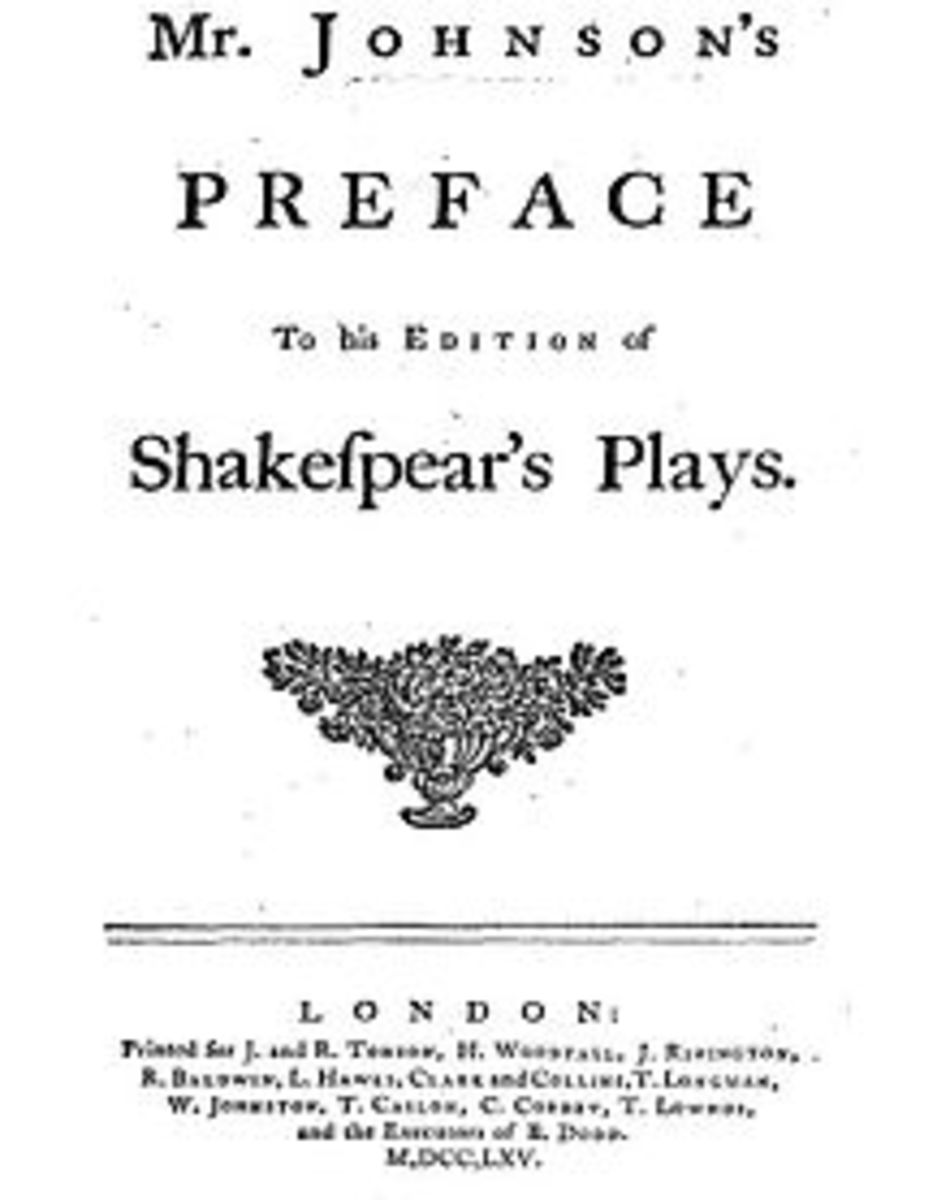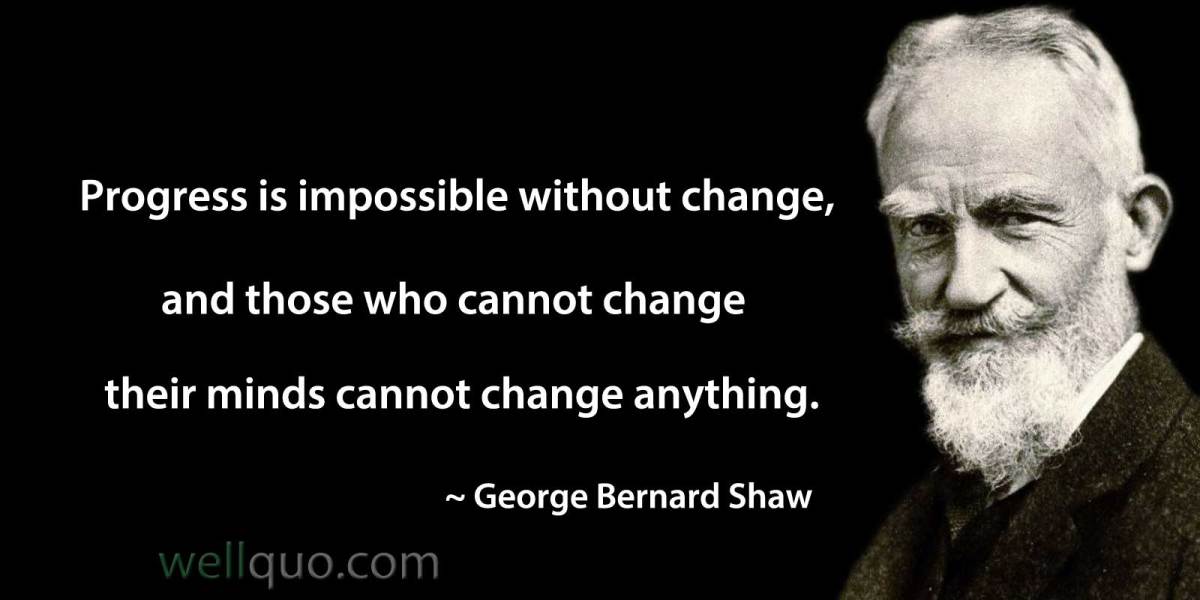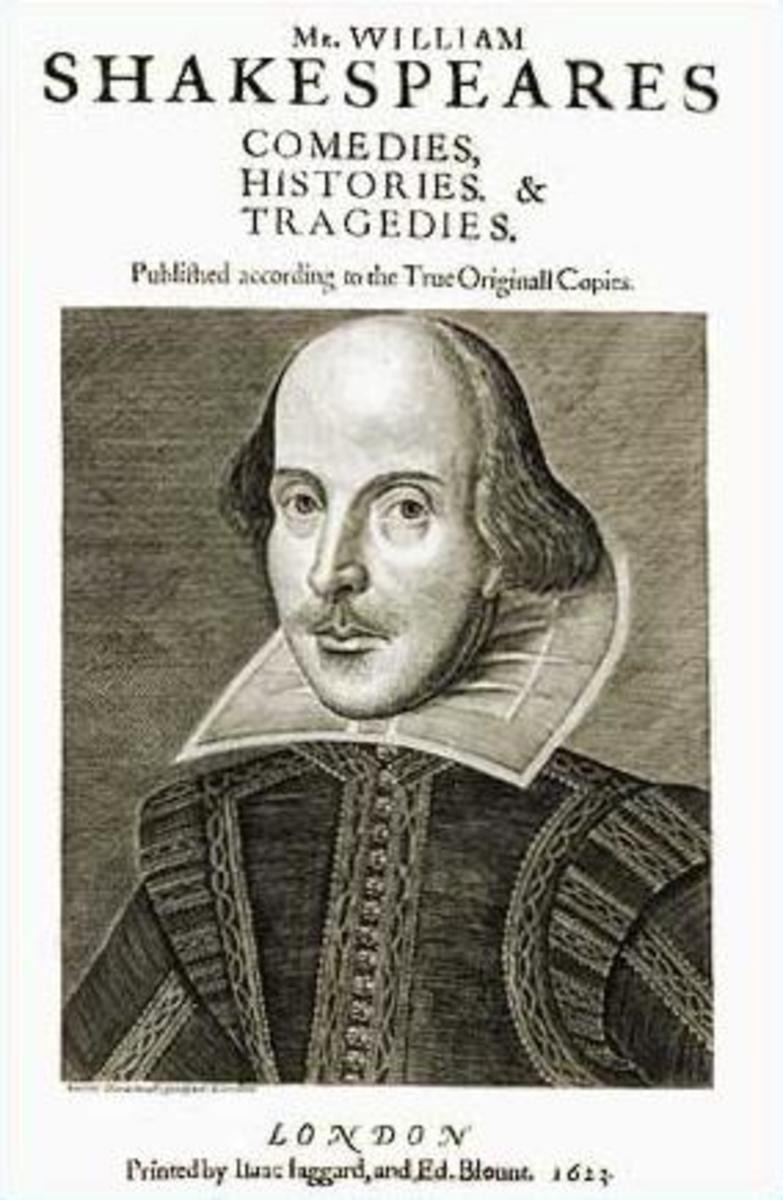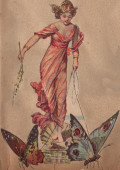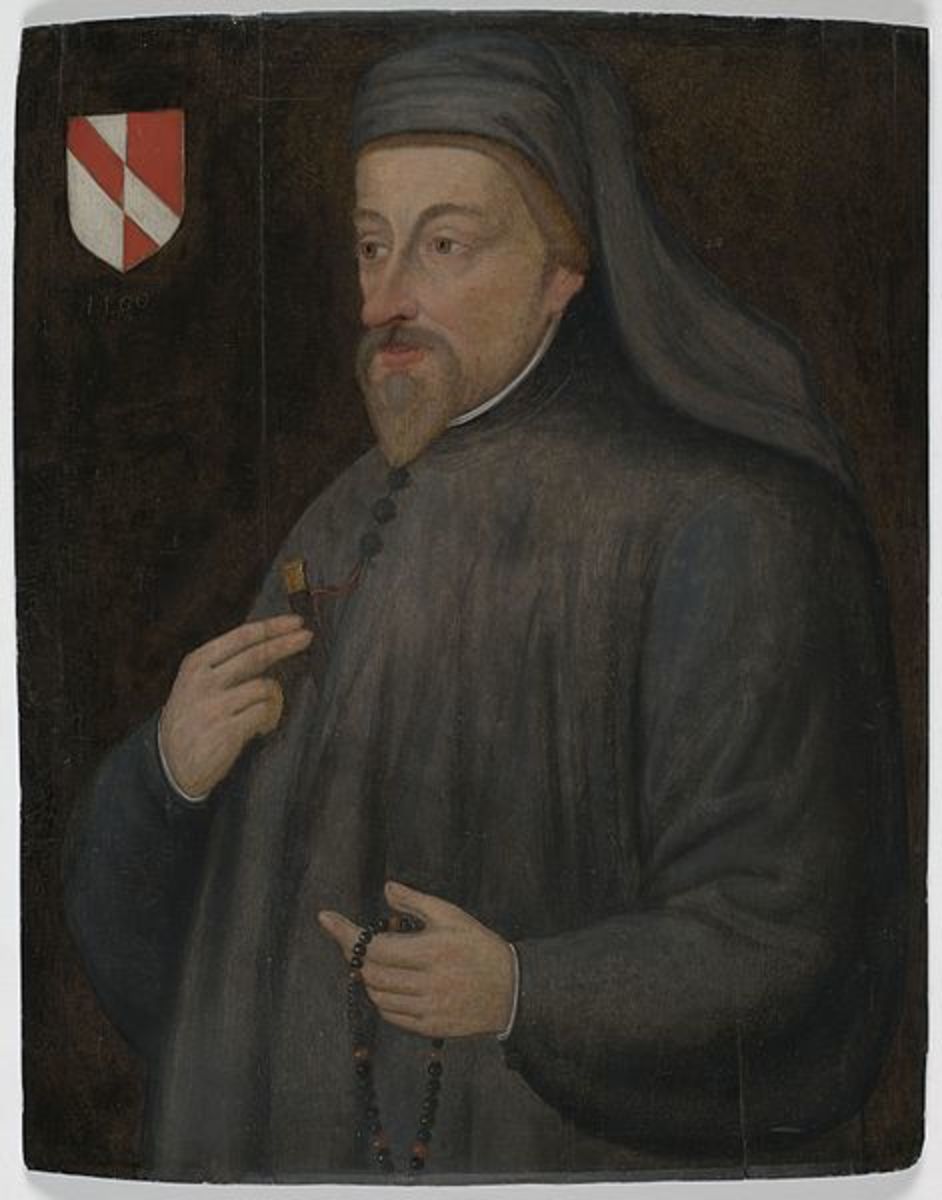What if Shakespeare Couldn’t Even Write His Name?
The Man From Stratford
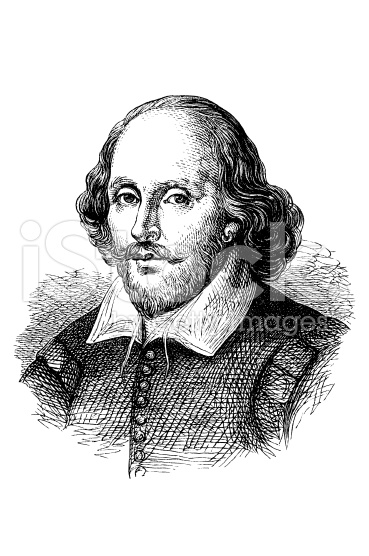
Have you Seen the Movie, "Anonymous"?
I hadn’t until I returned from a trip to the United Kingdom recently, and my son and daughter-in-law told me about it. Their timing was really aggravating because one of the highlights of my trip, as a writer myself, was visiting Stratford on Avon, the home of the most famous writer of all time: William Shakespeare.
After watching this movie, I wanted my money back for that portion of my tour. I’d been so excited on my pilgrimage I’d had my picture taken standing in front of the modest home of the bard. I’d proudly asked the actor who was waiting for us tourists as we exited the house to recite my favorite Shakespearean passage (from Macbeth):
Tomorrow, and tomorrow, and tomorrow,
Creeps in this petty pace from day to day,
To the last syllable of recorded time;
And all our yesterdays have lighted fools
The way to dusty death. Out, out, brief candle!
Life's but a walking shadow, a poor player,
That struts and frets his hour upon the stage,
And then is heard no more. It is a tale
Told by an idiot, full of sound and fury,
Signifying nothing.
The Birthplace of the Bard
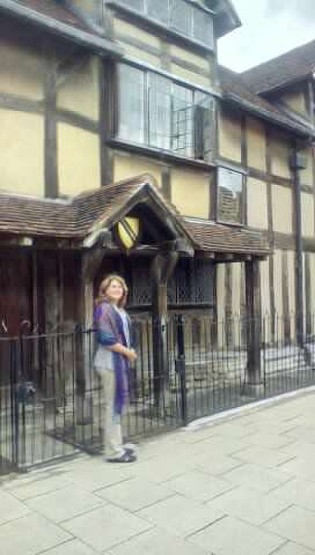
A Tale Told by an Idiot
Now, it’s not as though I’ve been unaware of the age-old debates regarding his body of work. My high school senior term paper was on the lost and doubtful plays of William Shakespeare. And that wasn’t just a few years ago. With all the resources of the Georgia State University library at my disposal in the early 1970s, I concluded that some of the works attributed to W.S. were debatably the work of such well-known authors from that time period as Sir Francis Bacon, Ben Jonson, and Thomas Marlowe. But I had no reason to believe that none of words that make up masterpieces such as “Hamlet” and “Romeo and Juliet” should be attributed to Shakespeare himself.
Today my resources are less limited. I harbored my disappointment following my time in Stratford and the viewing of “Anonymous” and took to the Internet. There I discovered the first time the credentials were even questioned of the man known as the greatest writer the world has ever known. A hundred years after Shakespeare’s death a priest, the Reverend James Wilmot, traveled to Stratford for the purpose of investigating the records there, which were the only ones in existence of the poet/playwright. He found not one book owned by Shakespeare, not one letter known to be written by him, and not one reference anywhere to Shakespeare the writer. (Terry Deary, British author of the BBC’s “Horrible Histories” series.)
Shakespeare never published any of his plays himself. There is no documentation of what year or in what order his plays were written. We read his plays today only because his fellow actors John Hemminges and Henry Condell collected 36 of his plays and made them public in 1623 as a posthumous dedication to their fellow actor. “The First Folio” is important proof that he was certainly believed in his time to have authored his plays. In spite of the investigate priest’s lack of conclusive evidence a century after his death, it was another hundred years before Shakespeare’s authorship was questioned. And it started as a joke.
In 1848, a young man studying the trend of the day to use historical and biographical evidence to question the existence of Jesus, decided to mock those efforts by applying the same standard to another important historical figure: Shakespeare. From his Lutheran point of view, Samuel Mosheim Schmucker decided to take a comedic tack by writing a parody entitled “Historic Doubts Respecting Shakespeare: Illustrating Infidel Objections Against the Bible.”
Schmucker (wonder what the basis was for the eventual use of his name: Schmuck?) pointed to the same questions doubters pursue today: the lack of documentary evidence, disputed texts, the improbable chances of a poorly educated person producing great literature, and powerful conspirators. James Shapiropoints writes in “Contested Will: Who Wrote Shakespeare?” that Schmucker was just having a good time at the expense of Biblical dissenters, never imagining anyone would seriously question the authorship of the renown Shakespeare. He must have been as surprised as anyone when a few years later his very questions would come to the forefront of intellectuals seemingly everywhere. The fundamental question first raised was simply this: How could an untraveled, poorly-schooled commoner have written so widely on topics about which he would have had no first-hand knowledge – court intrigue, the legal process, life in other countries, even stories and information that had never been translated into English?
Signifying Nothing
Helen Keller to Malcom X
By the mid nineteenth century doubters ranged from Helen Keller to Orson Welles to Malcolm X, though they never seemed to make a dent in the convictions of those true to the Shakespearean faith.
Some of the better known among those questioning was Mark Twain, “So far as anybody actually knows and can prove, Shakespeare of Stratford-on-Avon never wrote a play in his life.”
Novelist Henry James said, “I am ‘sort of’ haunted by the conviction that the divine William is the biggest and most successful fraud ever practiced on a patient world.”
Sigmund Freud, who drew heavily on "Hamlet" for some of his own theories, said, “It is undeniably painful to all of us that even now we do not know who was the author of the Comedies, Tragedies and Sonnets of Shakespeare.”
Even Charlie Chaplin had an opinion on the subject, “I can hardly think it was the Stratford boy. Who wrote them had an aristocratic attitude.”
The passing of the years hasn’t weakened the detractors from their quest to find the truth. The Shakespearean Authorship Trust has been in existence since 1922. Its current chairman, Mark Rylance, played the role of an actor in “Anonymous.”
Mark Rylance, Actor/Advocate
The Advent of Edward de Vere
Today countless organizations are committed to verifying the authorship of these masterpieces including the Shakespeare Authorship Coalition, which hosts the Web site DoubtAboutWill.org. Its petition, the Declaration of Reasonable Doubt about the Identity of William Shakespeare, has more than 2000 signatures.
One of the most well-known proponents today is a man with an inherited reason for his interest in the debate. It is literally in his blood. Charles Beauclerk (born 1965) is a descendant of Edward de Vere, 17th Earl of Oxford. He graduated from Hertford College, Oxford in 1989 with a degree in modern languages. In 1986 he established the De Vere Society to promote interest in the Shakespearean authorship question and to promote the argument that his family produced the true genius behind the famous body of work. In the 1980s he held the title, Lord Burford, but he eventually renounced his title and began going by his family name of Beauclerk.
The BBC’s Paul Hechinger agrees with the de Vere proposition. “Among those who believe that Shakespeare didn’t write his own plays, de Vere can be said to be the leading contender to unseat the Bard.” He cites Web sites and societies devoted to the authorship of the Earl of Oxford. “As in the plays themselves, there are many warring factions and charges of dark conspiracies to suppress the truth, so it’s with some trepidation that we enter these waters at all.”
Beauclerk concedes there is nothing directly saying Edward de Vere is the author. But he argues that in Elizabethan times the Earl’s authorship would have been a “a closely guarded political secret.” He states the printing presses were under government control. Any substantiating material would have been in the form of a diary or letters. He describes Oxfordian research as being in its infancy. “We’ve probably done 1 percent of the research we can do.” Such evidence may well be uncovered by thorough searches of many of his family’s historic residences that are as yet untouched.
Oxfordians make the following arguments to support their claims that de Vere was the actual author of the works attributed to Shakespeare. He was highly educated, well-traveled, trained as a lawyer, spoke and read several languages, and had close ties to the theatrical world of his day. There is documented proof that de Vere made trips to the exact locations that were settings in Shakespeare’s plays. He was even known to have been kidnapped by pirates in the English Channel. They abandoned him, stripped naked, on the coast of Denmark. Oxfordians draw similarities to the plot of “Hamlet.”
The earliest source to put forth the Earl of Oxford was J.T. Looney (another name with unfortunate implications) in 1920 with his book, “Shakespeare Identified.” The candidate for authorship has gained a great deal of support in the near century since.
Edward de Vere
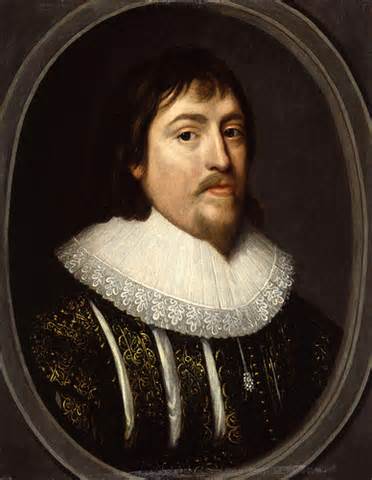
Not one . . .
BBC’s Hechinger reports that, other than the plays themselves, there is “precious little documentary evidence about Shakespeare.” That meager evidence includes: a few crude signatures with inconsistent spellings, a record of his marriage to Anne Hathaway, a three-page will with specific bequeaths (including his second-best bed given to his wife) but no mention of his writings. There were records showing he frequently sued other businessmen over trivial amounts of money, but never disposed himself of the courts when it came to the pirating of his work. Records show that in 1609 many of his sonnets were published without the bard’s permission.
“Not one single manuscript in his own hand of even a fragment of his amazing body of work has ever surfaced,” said Hechinger, adding “although scholars desperately searched for documentation to flesh out Shakespeare’s biography in the decades after his death, they found very little, and, to make matters more confusing, much of what they found was fraudulent.”
Beauclerk states there is no mention of “the Stratford man” as the true author until 1680, 65 years after that man's death. John Aubrey, a disreputable witness according to his employer, is the first man to mention Shakespeare unequivocally as the author. Described as “someone who thought little, believed much, and confused everything,” still he is the earliest resource for historical scholars. In 1709 Nicholas Rowe was the first person to write a biographical sketch of Shakespeare as the Stratford man, and the first book written expressing doubts about the Stratford man's authorship was written in 1769. “The Life and Adventures of Common Sense: an Historical Allegory” was published anonymously, claiming that a character called Wisdom, clearly identifiable as Francis Bacon, had made acquaintance with a person belonging to the playhouse and commenced play-writing under the name Shakespeare.
"Anonymous"
Honorificabilitudinitatibus
The first American to cast doubts about the Stratford man was Delia Salter Bacon in her 1857 book “The Philosophy of the Plays of Shakespeare.” Her theory also supported Francis Bacon as the true author.
Miss Bacon’s research was influenced by her friend, Samuel Morse, the inventor of the telegraph. He believed that Sir Francis had embedded codes inside the very plays themselves, such as in “Love’s Labors Lost”. He cited the longest word in any of the works attributed to Shakespeare: honorificabilitudinitatibus. The English word is the translation of the Latin phrase Hi ludi F. Baconis nati tuiti orbi – “These plays, the children of F. Bacon, are preserved for the world.” Further investigation reveals the word honorificabilitudinitatibus is the dative singular conjugation of a medieval Latin word used more than once by writers during the period of Dante. The translation is "the state of being able to achieve honors."
Ben Jonson
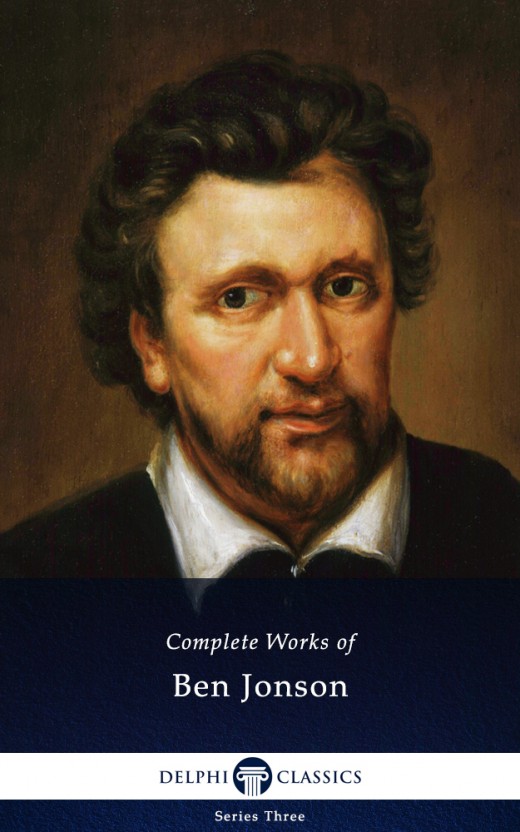
Also Known As
All these revelations bring the curious reader to ask, what historic facts do we actually know about the man from Stratford, AKA William Shakespeare? The following is what can be confirmed:
The assumption is that he was born on April 23, 1564. No one knows for sure. The only record is of his baptism on April 26. Babies were usually baptized three days after their birth, so this date is the best guess.
There are only two portraits of the man from Stratford. One is located in that town’s Holy Trinity Church. The other is the engraving of William Shakespeare by Martin Droeshout, which was first published on the title page of the 1623 "First Folio".
William married Anne Hathaway of Shottery when she was 26 years old and he was 18. The wedding took place in Temple Grafton, a village approximately five miles from Stratford.
Shakespeare's daughter, Susanna, was born six months after their marriage. Later twins Hamnet and Judith were born. Hamnet only lived to age 11. Judith lived to age 77 and Susanna to 66. They never referred to their father as a writer in any documentation.
If Shakespeare received a grammar school education, there are no records. But the school burned, so there wouldn't be any.
The first play attributed to Shakespeare was “Henry VI, Part One.”
William lived through the Black Death that killed more than 33,000 in London alone in 1603 when Will was 39.
The play, “Cardenio,” and its story line was lost, though there is record of it being performed during Shakespeare’s lifetime.
In 1609 many of his sonnets were published without his permission.
The last play to Shakespeare’s credit was “The Two Noble Kinsmen”.
A poem from a 1641 work titled “Discoveries” by Ben Jonson, one of Shakespeare’s more friendly rivals, criticizes the playwright's dramatic plays. In later years Jonson described the works of Shakespeare as "not of an age, but for all time". This conflict raises the question: Was Jonson referring to two different people?
"Me thinks thou doest protest too much."
To Thine Own Self . . .
Think what you will, or as the bard would say, “To thine own self be true.” But it is hard to argue with the general consensus of more than four centuries of Shakespearean scholars. In order to write at the level of the works attributed to him, this writer had to:
Attend school at many levels.
Have the ability to read and write Latin, French, Italian, Spanish, and Greek.
Have access to an enormous library.
Have extensive knowledge of law, medicine, botany, music, history, equestrian sports, and falconry.
Literally centuries of research have produced no evidence that:
After a 20-year writing career any records of it exist when records do exist for other, less-prolific writers of the same period.
After being raised in Stratford until age 21 where his language would have a Warwickshire dialect, there is any trace of it in even one of his poems or plays.
There are any records related to him ever getting paid for publishing anything.
Let Your Voice Be Heard
Who do you think really wrote "To be or not to be"?
The Last Word
Literary critic Harold Bloom’s 1999 book, “Shakespeare: The Invention of the Human” may have summed up the reason for the ongoing debate most succinctly.
“If you think Shakespeare didn’t write his plays, you have to believe in vast arrays of impossible plots, and, if you think he did, then you have to believe in an impossible talent.”

